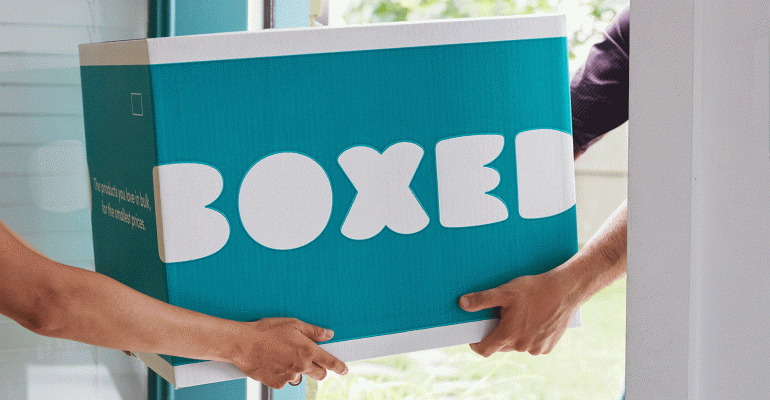Boxed continues to see online grocery delivery to consumers as a potential growth pillar even as it ramps up its ecommerce software business and its B2B grocery operations, the company said at an investor conference on Monday.
As reported last week, Boxed recently said it was exploring strategic alternatives for the business, including a potential sale of the company.
Speaking at the 2023 ICR Conference, Chieh Huang, co-founder and CEO, said the company said it believes it can drive margin improvements on consumer grocery delivery by batch-picking orders and driving higher average order volumes.
In 2021, Boxed acquired New York’s MaxDelivery, which delivers from an assortment of more than 10,000 items, including refrigerated and frozen products, that are picked in dark stores. The company has since expanded those operations from Manhattan to additional dark stores in Brooklyn and suburban Westchester County, New York.
“When you start batching some of those orders together, the margin profile is actually quite good,” said Huang.
He also said that with larger orders, the company gains some leeway in the time constraints of order fulfillment.
Boxed is also focusing on leveraging robotics and automation to make its fulfillment operations more efficient in its legacy B2B operations, Huang said. Those proprietary technologies, which are in use in the company’s Union, N.J., fulfillment center, have become a valuable asset, Huang said.
The robotics essentially “replicate a conveyor belt without the cap-ex of a conveyor belt,” he said.
“I think our automation could be helpful for other folks as well,” said Huang.
In the meantime, the company is also focused on driving sales in its other two pillars of operations:
The B2B grocery business, which drives higher average order volumes and better margins than its consumer grocery business by delivering dry groceries such as snacks in bulk to offices and other locations, and
Its e-commerce software-as-a-service (SAS) business, which consists not only of end-to-end ecommerce solutions, but as of recently also offers individual modules that address specific functions in the e-commerce ecosystem.
In other comments at the conference, Huang said the company started to see supply chains normalize in 2022, with more predictable product availability across categories. The improved in-stock conditions should help drive sales and margins in the year ahead, Huang said, as customers are able to fulfill their orders and the company will be able to sell more of its private-brand products as well.





